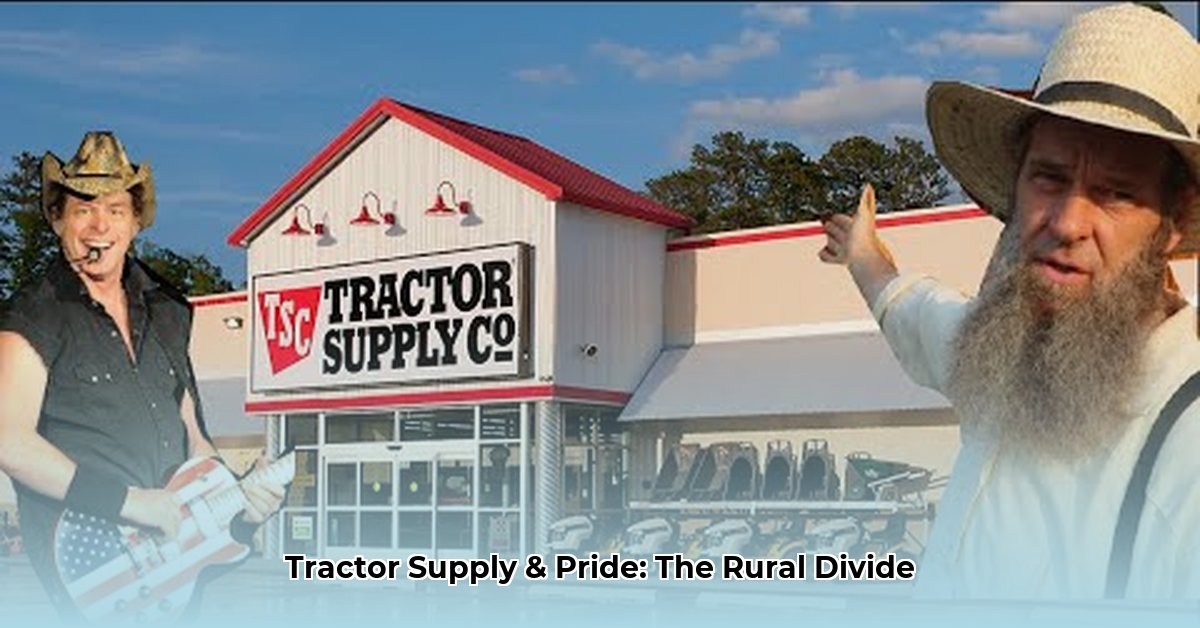
Tractor Supply's Retreat from DEI Initiatives Sparks Debate
Tractor Supply Company, a retail giant catering to rural America, recently reversed course on its diversity, equity, and inclusion (DEI) and environmental sustainability initiatives, sparking a fierce debate about corporate social responsibility (CSR) and its application in diverse communities. Following a conservative backlash led by activist Robby Starbuck, the company scaled back its public commitments, resulting in a 5% drop in its share price. This decision highlights the complex interplay between corporate values, consumer expectations, and the significant cultural divides that exist between urban and rural America.
A Shift in Stance: From Inclusion to Retrenchment
Initially, Tractor Supply embraced DEI and environmental goals, launching several programs intended to foster inclusivity and promote sustainable practices. However, this proactive stance was met with significant opposition from a segment of its customer base. Conservative activists, using social media and other channels to amplify their message, successfully framed these initiatives as a rejection of traditional values. This campaign, spearheaded by Robby Starbuck, significantly impacted Tractor Supply’s public image, creating pressure that ultimately compelled the company to retreat from its previously announced commitments.
The Rural-Urban Divide: A Clash of Values
The controversy underscores significant differences in social and political values between urban and rural communities. While urban areas generally demonstrate greater acceptance of LGBTQ+ rights and environmental concerns, rural regions frequently hold more conservative viewpoints. This cultural divide makes it incredibly challenging for companies with nationwide operations to craft CSR strategies that resonate with all stakeholders. Tractor Supply's experience serves as a potent example of the difficulties inherent in navigating such a complex landscape. Does this mean Tractor Supply no longer supports LGBTQ+ rights? Their actions suggest a prioritization of maintaining its core customer base, even at the potential cost of long-term reputational damage.
Financial Fallout: A 5% Dip and Lingering Uncertainty
The immediate financial consequence of Tractor Supply's about-face was a 5% drop in its share price, a clear indicator of investor concern. The long-term impact, however, remains uncertain. While the short-term financial hit is quantifiable, the potential for lasting reputational harm among a significant portion of the population is harder to assess. The negative reaction from LGBTQ+ advocates and other minority groups casts a shadow on the company's long-term brand image and future profitability. Could this ultimately affect their ability to attract and retain both customers and investors in the future?
Navigating a Complex Landscape: Strategic Implications for Tractor Supply and Competitors
The Tractor Supply situation forces a critical reassessment of CSR strategies, particularly within the context of rural communities. A one-size-fits-all approach to DEI and environmental initiatives may not be viable in a market characterized by diverse values and perspectives. Companies must engage in careful research, prioritize open communication with stakeholders, and develop adaptable strategies that reflect the unique characteristics of their diverse customer base. Competitors are likely watching Tractor Supply's response closely, seeking to learn from its experience and refine their own CSR initiatives to avoid similar pitfalls.
Conclusion: A Continuing Debate and Uncertain Future
Tractor Supply’s decision to retreat from its DEI and environmental commitments provides a compelling case study in the complexities of corporate social responsibility. The company's experience highlights the need for nuanced, regionally tailored strategies that account for the diverse values and priorities of its customers. The ongoing debate underscores the challenge of balancing commercial interests with social responsibility, particularly within a fragmented and often-polarized society. The long-term consequences of Tractor Supply's actions—both financial and reputational—remain to be seen, but its experience serves as a stark reminder of the risks inherent in a poorly-planned CSR strategy.